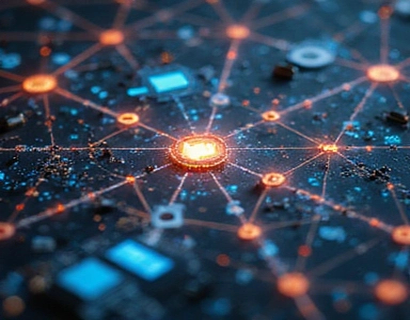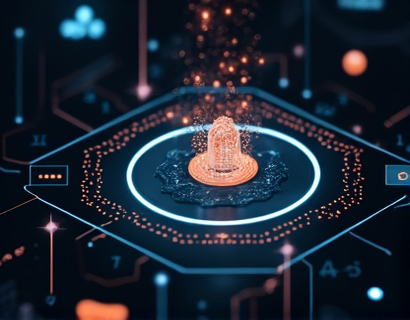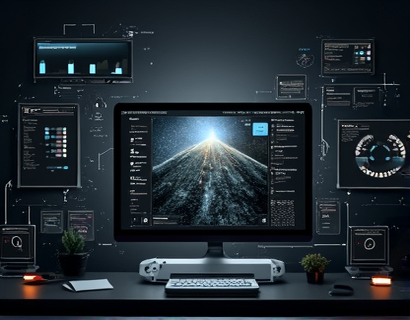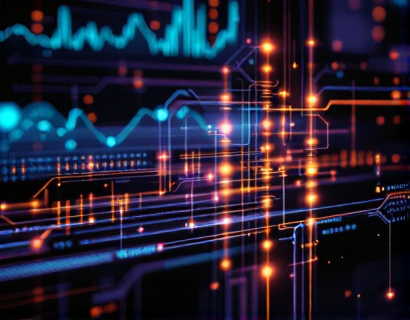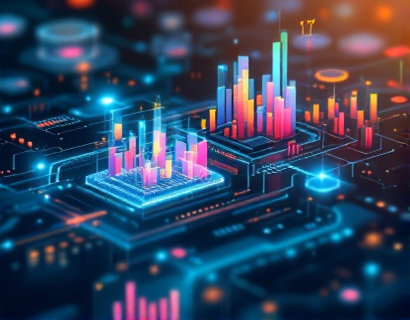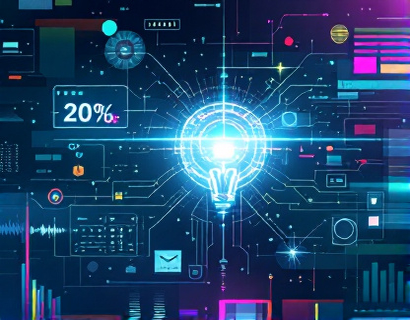Empowering Tech Innovators: The Synergy of Crypto and AI in Digital Transformation
The intersection of cryptocurrency and artificial intelligence (AI) is catalyzing a new era of technological innovation, offering transformative solutions that are redefining the digital landscape. This synergy is not just a trend but a fundamental shift in how we approach digital transformation. For tech innovators and early adopters, understanding the potential of merging these two powerful technologies is crucial for staying ahead in a rapidly evolving market.
The integration of cryptocurrency and AI is creating a robust ecosystem that enhances security, efficiency, and accessibility in various digital applications. Cryptocurrency, with its decentralized and transparent nature, provides a secure foundation for AI-driven solutions, while AI's computational prowess elevates the capabilities of blockchain technology. This combination is driving advancements in areas such as smart contracts, decentralized finance (DeFi), and predictive analytics, among others.
Enhancing Security with Cryptographic Techniques
One of the most significant benefits of combining cryptocurrency and AI is the enhancement of security measures. AI algorithms can analyze vast amounts of data to identify patterns and anomalies, which is invaluable in detecting and preventing fraudulent activities. In the context of blockchain, AI can optimize consensus mechanisms, ensuring that transactions are processed securely and efficiently. For instance, machine learning models can predict potential vulnerabilities in smart contracts, allowing developers to address these issues proactively.
Moreover, AI-driven security solutions can adapt to new threats in real-time, providing a dynamic defense against cyber attacks. This is particularly important as the complexity of cyber threats continues to grow. By leveraging AI, blockchain networks can maintain their integrity and trustworthiness, which are essential for widespread adoption.
Optimizing Smart Contracts with AI
Smart contracts, self-executing contracts with the terms directly written into code, are a cornerstone of blockchain technology. However, their effectiveness can be limited by the complexity of the logic they need to execute. AI can significantly enhance smart contracts by optimizing their code, reducing the risk of errors, and improving performance. AI algorithms can analyze existing smart contracts to identify inefficiencies and suggest improvements, making the contracts more robust and reliable.
Additionally, AI can assist in the creation of more sophisticated smart contracts that can adapt to changing conditions. For example, AI can enable smart contracts to make decisions based on real-time data, such as market prices or user behavior, thereby increasing their utility and flexibility. This capability is particularly valuable in decentralized finance (DeFi) applications, where dynamic and responsive contracts are essential for managing financial assets.
Decentralized Finance (DeFi) and AI-Driven Innovations
DeFi has emerged as a revolutionary force in the financial sector, offering decentralized alternatives to traditional banking and financial services. The integration of AI into DeFi platforms is further amplifying its potential. AI can enhance risk management, fraud detection, and portfolio optimization in DeFi, providing users with more secure and efficient financial tools.
For instance, AI-powered predictive analytics can forecast market trends and volatility, helping users make informed decisions about their investments. AI-driven bots can automate trading strategies, execute transactions at optimal times, and manage risk exposure. These AI-enhanced DeFi solutions not only improve user experience but also democratize access to financial services, making them available to a broader audience.
Personalized User Experiences through AI
The combination of cryptocurrency and AI also enables the creation of personalized user experiences. By analyzing user data and behavior, AI can tailor recommendations and services to individual preferences, enhancing user engagement and satisfaction. In the context of blockchain-based platforms, this personalization can extend to customized wallet interfaces, tailored investment advice, and personalized content delivery.
For example, AI can analyze a user's transaction history and preferences to suggest relevant DeFi products or investment opportunities. This level of personalization not only improves user experience but also fosters greater adoption of blockchain technologies by making them more user-friendly and accessible.
Supply Chain Optimization with Blockchain and AI
Supply chain management is another area where the synergy of cryptocurrency and AI is making a significant impact. Blockchain provides a transparent and immutable ledger for tracking goods and materials, while AI can optimize various stages of the supply chain, from production to delivery. The combination of these technologies ensures greater efficiency, traceability, and accountability.
AI can predict demand patterns, optimize inventory levels, and identify bottlenecks in the supply chain, reducing costs and improving delivery times. Blockchain ensures that all transactions and movements are recorded accurately and securely, providing end-to-end visibility. This integration is particularly beneficial for industries such as logistics, manufacturing, and e-commerce, where transparency and efficiency are critical.
Enhancing Internet of Things (IoT) with Blockchain and AI
The Internet of Things (IoT) is transforming the way we interact with the physical world, connecting devices and systems to collect and exchange data. The integration of blockchain and AI in IoT solutions enhances security, data integrity, and decision-making capabilities. Blockchain can secure the communication between IoT devices, ensuring that data is tamper-proof and reliable. AI, on the other hand, can process and analyze the vast amounts of data generated by IoT devices, extracting valuable insights and enabling predictive maintenance.
For example, in smart cities, AI can analyze data from IoT sensors to optimize traffic flow, manage energy consumption, and enhance public safety. Blockchain ensures that the data used for these applications is secure and trustworthy, fostering greater adoption and integration of IoT technologies.
Challenges and Considerations
While the potential of combining cryptocurrency and AI is immense, there are several challenges and considerations that tech innovators must address. One of the primary concerns is the regulatory landscape, as both cryptocurrencies and AI are subject to varying regulations across different jurisdictions. Ensuring compliance and navigating the legal complexities is essential for the successful deployment of these technologies.
Another challenge is the technical complexity involved in integrating blockchain and AI systems. Developers need to possess a deep understanding of both technologies to create seamless and efficient solutions. Additionally, the computational resources required for AI algorithms, especially those involving machine learning and deep learning, can be substantial. Efficient resource management and scalable infrastructure are crucial to support these demanding processes.
Future Prospects and Opportunities
The future of cryptocurrency and AI is bright, with numerous opportunities for innovation and growth. As the technologies continue to mature, we can expect to see more sophisticated applications across various industries. The convergence of these technologies will likely lead to the development of new business models, enhanced user experiences, and more resilient digital ecosystems.
For tech innovators and early adopters, staying informed about the latest advancements and best practices in both cryptocurrency and AI is essential. Collaboration and knowledge sharing within the community can drive collective progress and accelerate the adoption of these transformative technologies. By embracing the potential of blockchain and AI, innovators can position themselves at the forefront of the next wave of digital transformation.



